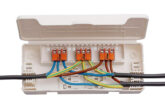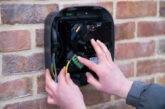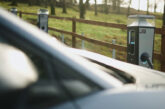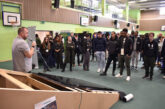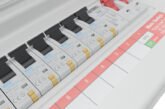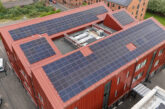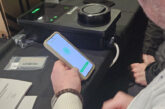
In the final part of a series of articles looking at opportunities for electricians in offshore renewables, we put the questions to Chris Snell, Head of SIT UK/FR at Siemens Gamesa Renewable Energy, as he provides advice for professionals who are considering making the switch.
Q. WHAT IS YOUR CURRENT ROLE?
I’m the Head of Site Installation Technicians UK for Siemens Gamesa Renewable Energy, responsible for all of the Siemens Gamesa construction technicians and their line managers within the UK and France.
Q. WHAT IS YOUR BACKGROUND?
I’m a time served electrician, earning my way onto an apprenticeship aged 18 after sweeping floors for two years. From there I worked in industrial automation, building and designing electrical systems for automated packaging machinery before working in a concrete tile manufacturing plant and then in a bulk handling facility. I really loved fault finding and enjoyed the pressure of trying to find the fault while the factory was stood still.
Q. WHY DID YOU MOVE INTO OFFSHORE WIND?
The renewables industry looked exciting and I associated the name Siemens with quality. When I read the job advert it seemed like an amazing opportunity, and after doing some research I learned that my skills as an electrician transferred perfectly, especially as the wind turbines I started on 15 years ago were heavily electrical. I also felt that I might do well in a bigger organisation and that there would be opportunities for progression and travel if I worked hard.
Q. WHAT HAS YOUR CAREER PATH IN RENEWABLES LOOKED LIKE?
I joined Siemens Wind Power as a Wind Turbine Maintenance Technician in the service side of the business, adding to a cohort of around 10 individuals. From there we undertook technical product training in Denmark, which now takes place in Hull.
I was not long into my career when the Site Manager role came up for the windfarm I worked on, and I ended up successfully running the site for four years. Since then I’ve worked in various management roles within the renewables industry including, service, production and construction. My electrical background has stood me in good stead and really helps when I’m talking to technicians; I have a great respect for the job they do and the care that they take in their work.
Q. WHAT HAS BEEN POSITIVE ABOUT YOUR EXPERIENCE IN THE RENEWABLES INDUSTRY?
I’ve loved almost every minute of my time at Siemens. The investment in training and competence management is excellent and the industry is having a positive impact in towns across the UK; bringing jobs, opportunities and investment in the areas, as well as through apprenticeship programs.
Offshore wind is an ideal place for an electrician, as the skills and competencies required transfer well in this industry; all the electrical principles basically remain the same.
Q. WHAT DEVELOPMENT CAN THE RENEWABLES INDUSTRY OFFER IN TERMS OF LONG TERM PROGRESSION FOR INDIVIDUALS?
If I use myself as an example, I joined as a technician in 2008 and from the day I started I’ve benefited from investment in my learning, and through access to some of the best courses available – both as a technician and as a manager. I’m now head of a department that has 200 employees (the people who are actually building all the new turbines).
This industry is still only just beginning and we need technicians and leaders of the future; there is not only progression to management but also to engineering departments, project management, health & safety and quality.
Q. GIVEN THAT SOME OLDER ELECTRICIANS MAY WISH TO TRANSITION AWAY FROM BLUE COLLAR WORK, DOES THE OFFSHORE INDUSTRY HAVE A SHELF LIFE IN TERMS OF AGE?
We have technicians of all ages in the teams and I would say the role is not typically strenuous. We even have lifts in the turbines so you don’t always have to climb the ladders. If people do want to move off the tools and into more supervisory positions then we have that natural progression to some of our installation lead roles – there is no large cut in salary when you move to a management position but these roles do tend to be salaried with no overtime and allowances.
I would warn, however, that as much as I love my job, I don’t get the same practical satisfaction as I did when I was on the tools. Luckily, I have renovation projects at home to help fill that gap!
Q. AS THE SENIOR UK LINE MANAGER WHAT ARE YOU LOOKING FOR IN APPLICANTS?
We require electrically skilled individuals for most of our roles. Having qualifications is essential but we also need to know about other factors such as safety (safe isolation, understanding limits and an appreciation of the environment), which is something we discuss during every interview.
We’re looking for team players and people who care about their colleagues. Additionally, I always like to see a covering letter with any application which expresses personal interests and relates to our team.
Q. WHAT DOES THE FUTURE LOOK LIKE FOR OFFSHORE WIND?
As I’ve mentioned previously, I believe we’re just at the beginning for this particular industry. Global installed offshore wind capacity is expected to reach 630 gigawatts by 2050 (it is currently around 55 gigawatts) which means the industry has a lot of wind turbines to install. As such, we’re going to be very busy for a number of years to come.
Find out more about the current roles and vacancies at Siemens Gamesa here





